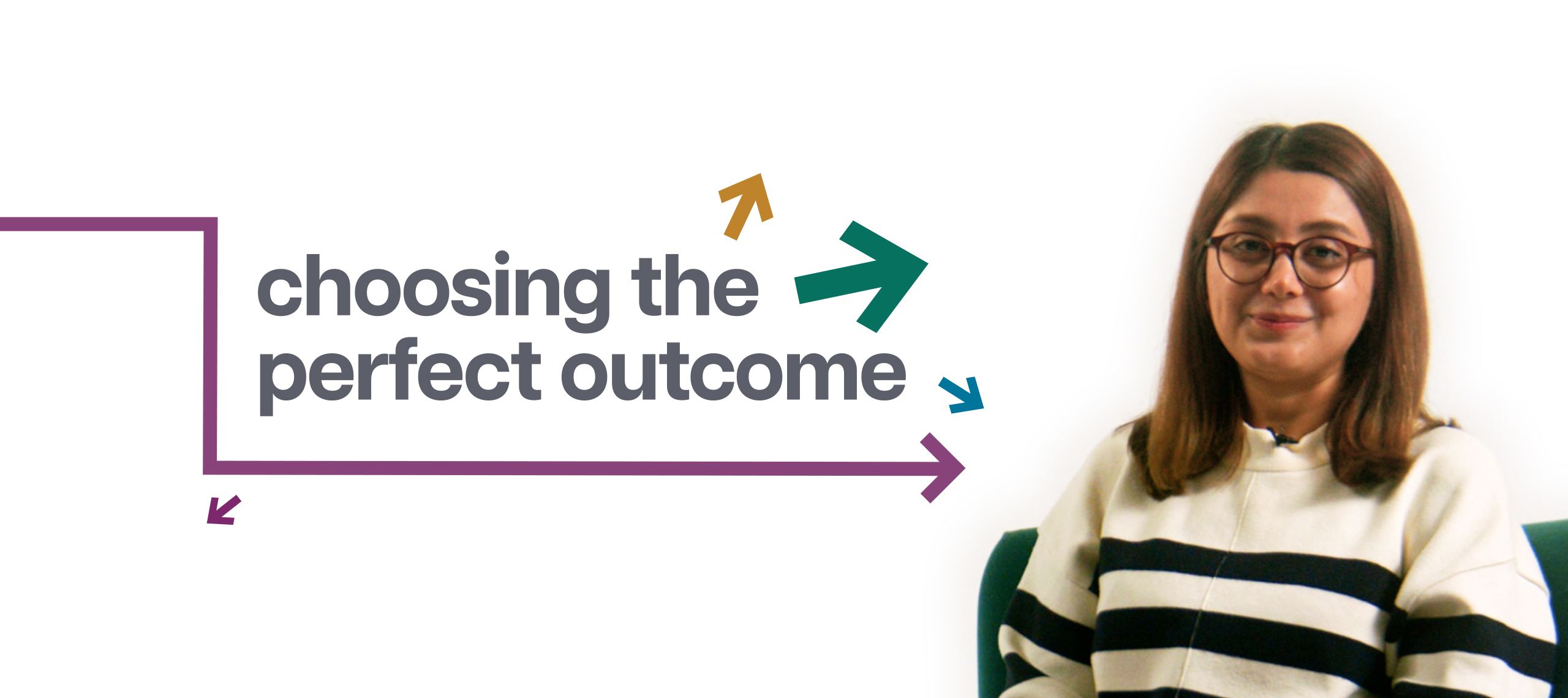
Research Journeys: Choosing the perfect outcome
If AI is going to help, this should be the priority.
Unhappy with the endings of some blockbuster films, Behnaz thought developing AI (artificial intelligence) could give us the power to choose our own endings. But now she uses AI to help treat cancer, giving patients the chance to choose their own medical pathway.
Although she has nearly finished her PhD project, she feels her journey has just begun. Her goal now is to use AI to help clinicians provide the best possible treatments for patients.
Behnaz is a final year PhD student, developing and AI system that provides help in cancer treatment.
Read more about Behnaz and her research.
Transcript
[Behnaz is sitting in front of a white background speaking directly to camera.]
Behnaz: When I first saw the Titanic movie, I was not happy with the ending.
I remember that while I was watching the movie, I was telling myself, if I were Rose, I wouldn't make that decision. Or if I were Jack, I wouldn't go downstairs. I believed with my decision, the ending of the movie would be more beautiful and happier.
When I finished the movie, I was thinking to myself that maybe computers can create movies, that we can choose the decisions for the characters. And based on our decision, the ending of the movie can change. Then I finished and I forgot about my idea, until the night that I was an undergraduate student at university, and I was watching the Black Mirror series, which is a sci- fi series about the future of AI, artificial Intelligence. I was fascinated by the whole series and the power of AI and how it can create an imaginary world for people. But that episode was exactly what I wanted. You literally could decide what to do, and based on your decision, the ending of the movie can change.
I was so happy to see that. I told myself this was my idea. I need to be a part of it. I told myself I need to be that AI expert who creates movies with AI. Imagine, you go to the cinema, you put something in your ears, you feel yourself in the movie because there are signals going to your brain. You can decide what to do. And AI can create the rest of the movie based on the decision. You go to the cinema ten times for one movie with ten different endings. Isn't it beautiful?
So, I made my decision. I'm going to create a very big change in the world of the movie industry. So, I started studying Master in AI, and after I finished I was searching for AI PhD projects, but I couldn't find exactly what I wanted.
I found AI in health care, and I was telling myself, okay, that's not a big deal. You go to this project and at least you find out how to work neural networks on the image dataset and then movies and then you can create your dreams towards your PhD.
So, I met my supervisor and he told me I have to focus on this problem, which is a cancer treatment, and I can't run my models on whatever I wanted.
I was quite disappointed. But, you know, I needed that PhD. I wanted to be a Phd in AI So, I told myself, okay Behnaz, just quickly finish your PhD the then directly go to industry and you can follow your dreams and you can create that imaginary movie that you want. I started to read more and more about the problem.
Then at some point I had to go to a hospital to receive the dataset. And I saw many young people and children fighting for their life. You know, the problem is most of the patients, even after cancer treatment, can't have a normal life because the treatment can damage other organs. For example, radiotherapy can damage healthy organs as well. And I saw many people suffering and they are in pain even after the cancer treatment.
I found that this is a matter of life. This is not enjoying a movie for two hours and how AI can help these patients. AI can predict what is going to happen for this patient after the treatment. For example, if this patient does this treatment, this is going to happen to her, or if patient does this treatment, this is going to happen to her. So basically, a patient can decide which treatment can create a happier ending for her life.
I was thinking that this is very similar to Titanic. The patient can decide what to do and create a better, happier ending for their life. So, I told myself I was a bit selfish, that I thought, AI is very powerful, is not worth using it. I think if AI is going to help, this should be the priority.
I started writing codes, you know, Created my first, second, third method. And then finally when I finished my method, I went to my supervisor and I showed my results to her. She told me yes, Behnaz, this is working. Your method is clinically convincing.
And at that moment I was very happy, very satisfied. I thought, yes, I did something. You know, I couldn’t create a very big change in the world, but something very big changed in me. I don't want to go to industry anymore and create, that movie. I want to stay in academia and use all my knowledge to help cancer treatment with AI.